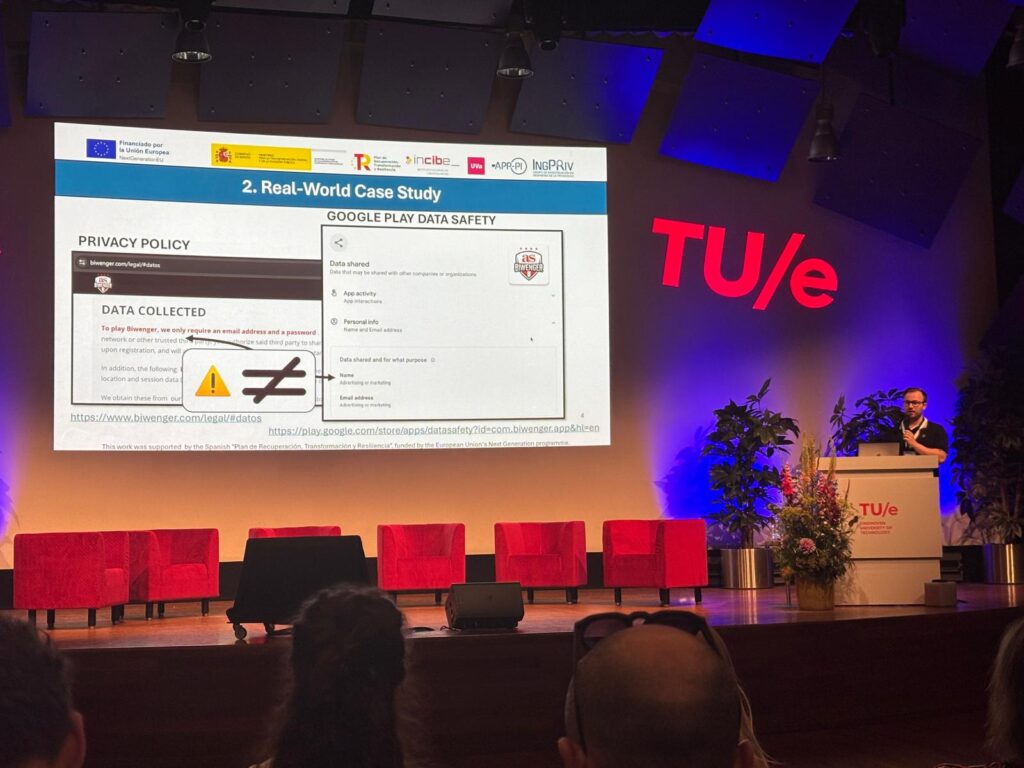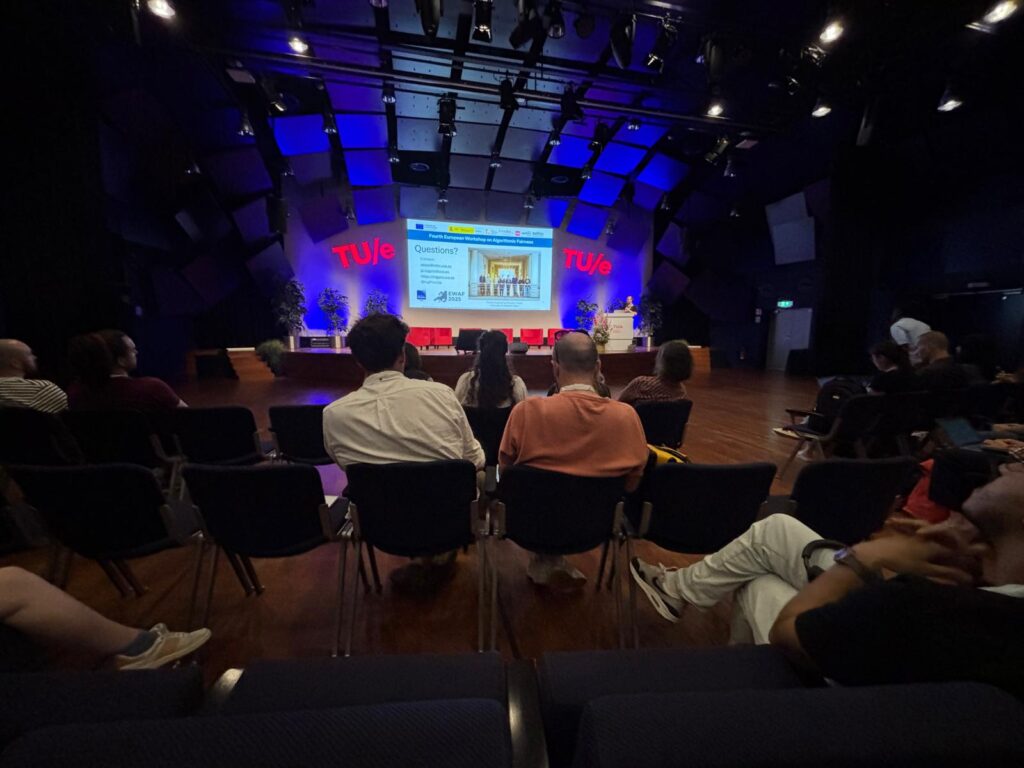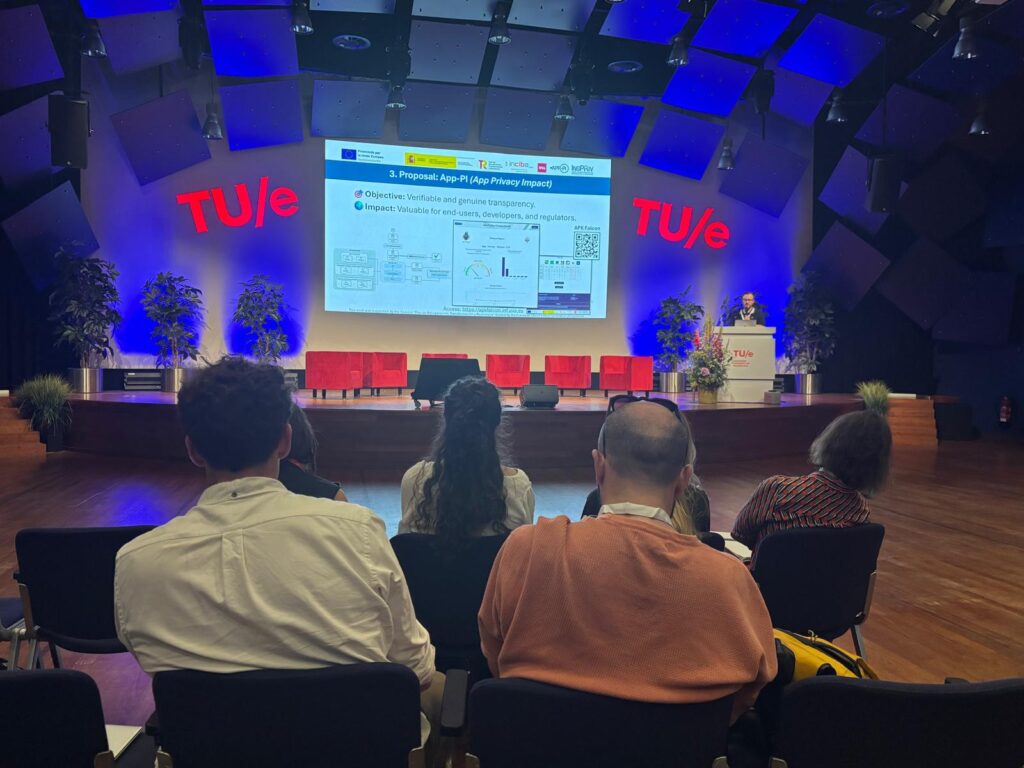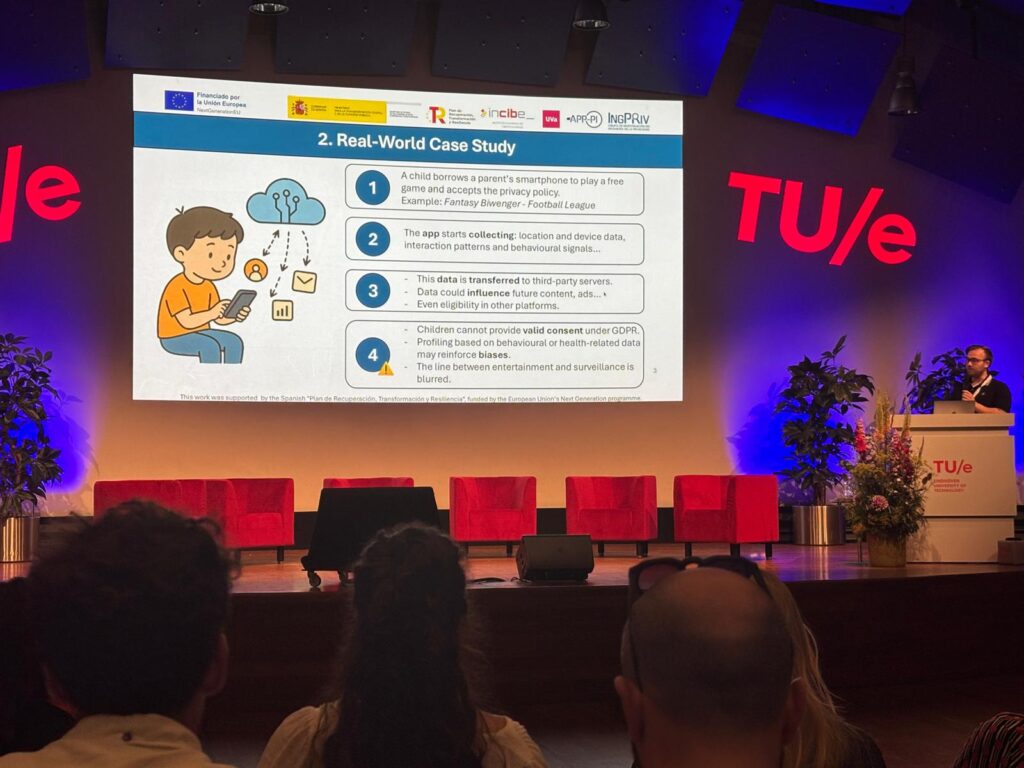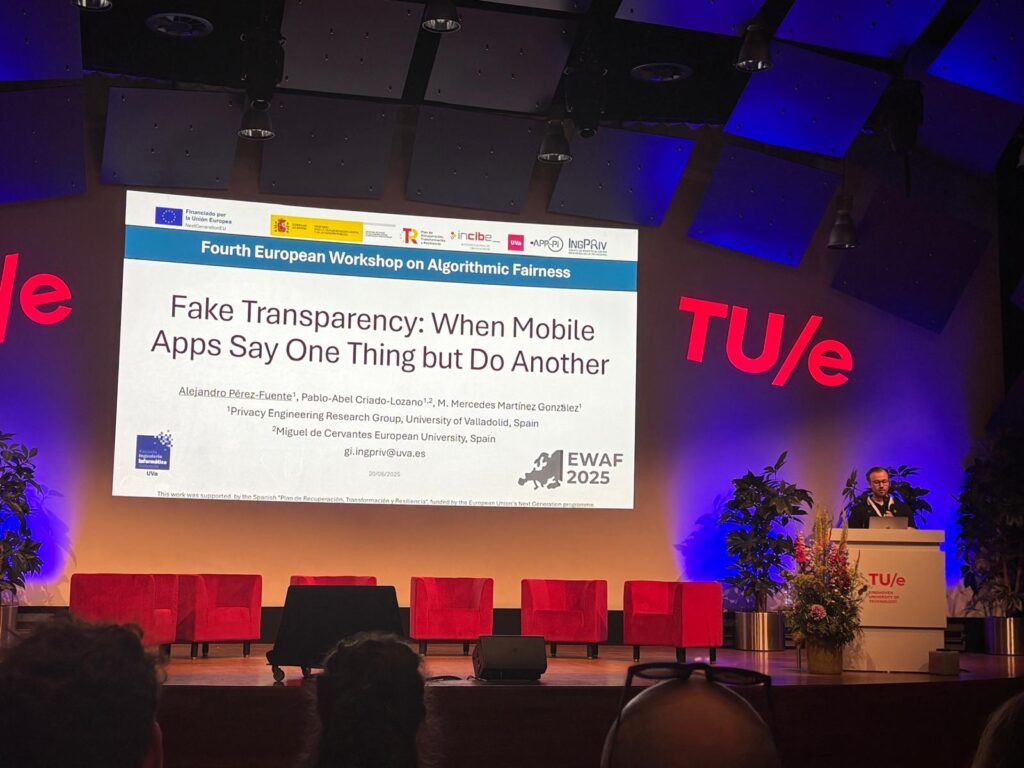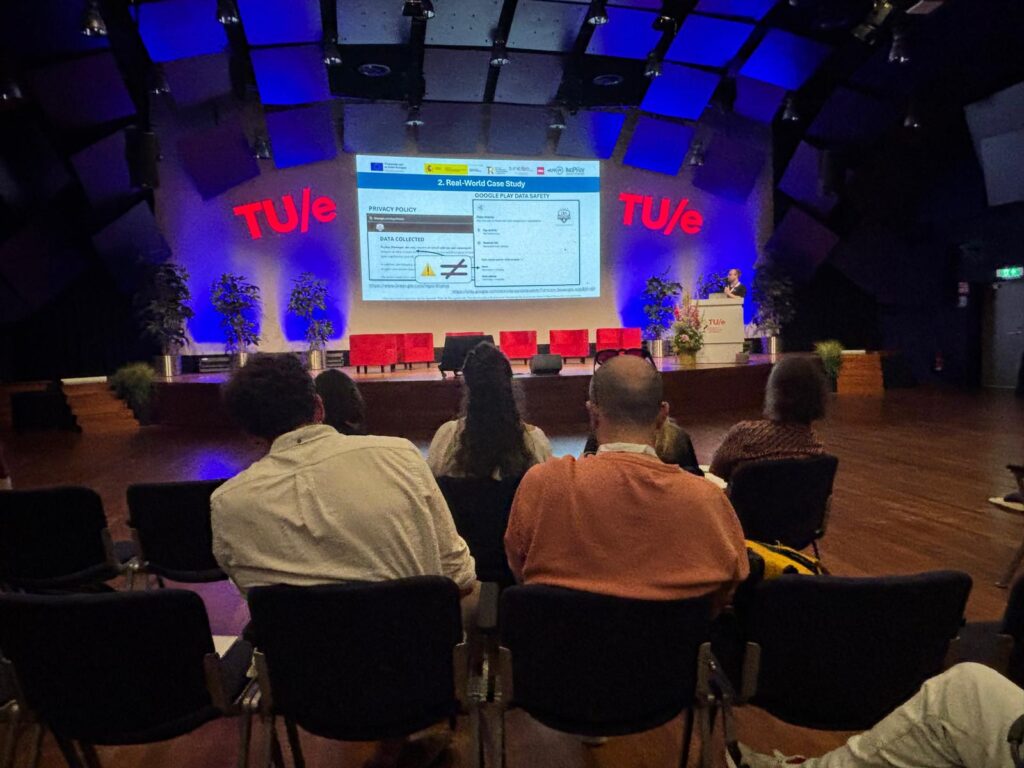In early July, during the Empirical Workshop on Algorithmic Fairness (EWAF 2025) held in Eindhoven (Netherlands), Alejandro Pérez de la Fuente, member of the Privacy Engineering Research Group (IngPriv) at the School of Computer Engineering of the University of Valladolid, presented the work carried out together with Pablo Abel Criado Lozano and Mercedes Martínez González: Fake Transparency: When Mobile Apps Say One Thing but Do Another.
This research highlights the lack of coherence between what many mobile applications claim to do with users’ personal data and what they actually do.
During the presentation, it was explained how the collection and use of data on minors and other vulnerable profiles through video game, health or female tracking apps, among others, affects digital privacy.
The study analyzes the collateral damage that this fake transparency can cause: from violations of user consent to algorithmic discrimination, including the unethical or even illegal use of personal information shared without the user’s genuine awareness.
This research aims to strengthen the mechanisms of auditing, oversight, and regulation of data usage in mobile apps, especially when it involves sensitive groups such as minors.
